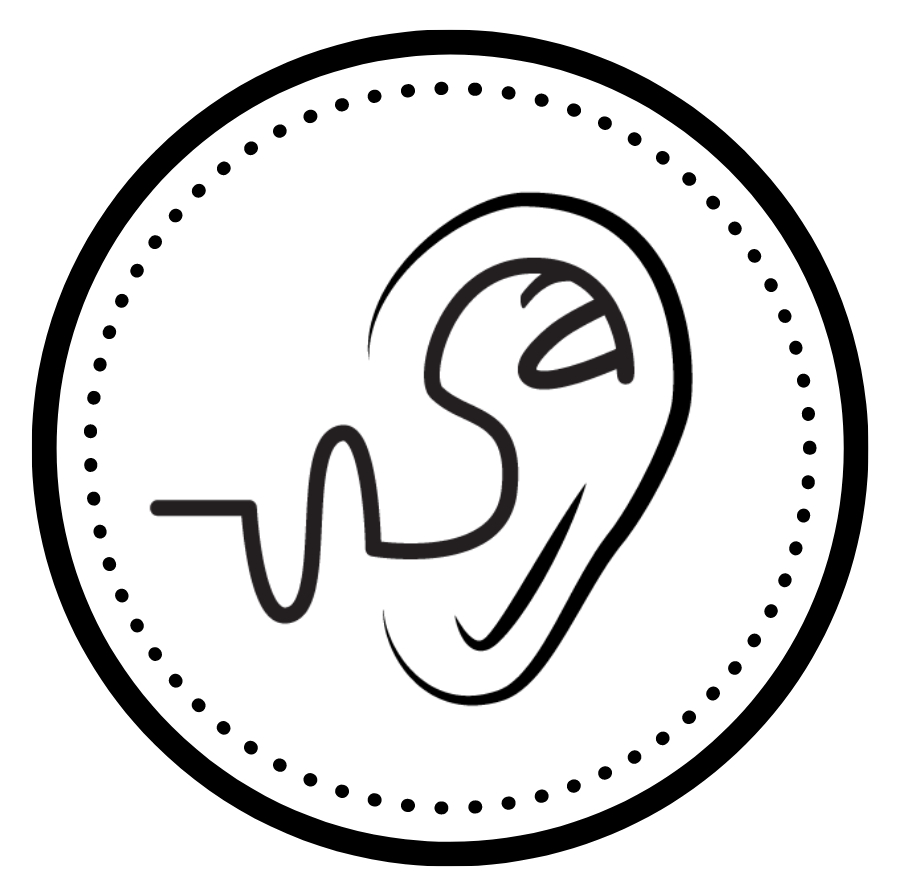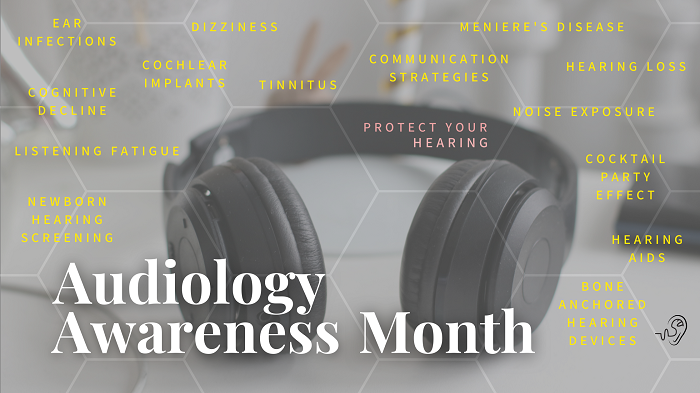October is officially Audiology Awareness Month! Coincidentally, October is also Mental Health Awareness Month.
I am two months into this blogging thing and let me tell you – it’s a lot of fun. I sort of wish I had started sooner, but that doesn’t matter because I’m glad I took the initiative and JUST STARTED. In case you couldn’t tell, I am passionate about audiology and I want to make sure everyone I interact with understands the significance of audiology services in healthcare.
Hearing is only one aspect of communication.
For many people outside of the Deaf community, the ability to hear allows people to connect and engage through spoken language. We use tones and words to express our thoughts and feelings. When we gradually lose the ability to hear over time, we become less in tune with reading someone’s emotions during a conversation. Instead, someone with a significant hearing loss will spend most of the conversation trying to fill in the missing pieces because speech no longer sounds crisp and/or clear.
Day after day. Year after year. Communication becomes increasingly challenging due to the high cognitive load that someone with hearing loss is experiencing. It’s easy for someone to say, “I give up. I don’t understand and I don’t know what’s going”, but I’m willing to bet it’s not easy for the same person to say, “I don’t care that I don’t know what’s going on”. We all care to some extent. No one wants to feel left out of a conversation or an activity. It’s an isolating thought and most definitely a difficult position to be in when you recognize that your hearing loss is hindering your social interactions.
Untreated hearing loss and isolation
People with untreated hearing loss will start to alienate themselves from group settings. By limiting their participation in group activities, they are able to lower their chances of not hearing or misinterpreting what someone says to them. And this is where their mental health can start to become problematic. Hearing loss does not directly cause depression. However, if you consider a chain of events in which someone with hearing loss chooses not to hangout with friends anymore, he/she will have to cope with the loneliness associated with social withdrawal.
Untreated hearing loss and cognitive health
Hearing loss does not directly cause dementia. Recently, research data has revealed associations between people diagnosed with hearing loss and early onset of cognitive impairment. However, there’s still not enough data to indicate that hearing loss is a significant contributor to poor cognitive function. The reason for this is because there are so many other complex factors (e.g. genetics, history of head trauma or brain injuries, vascular health) to consider as well.
Final thoughts
What I’m trying to convey with the information above is that hearing health should be a priority because hearing allows us to stay connected with the people around us. Being able to hear and understand the world encourages us to stay socially active. We need to engage in activities that will help us exercise different parts of our brain for logical reasoning, informational processing, memory storage, movement, and more.
Communication is a two-way street and it can be incredibly frustrating when there is a communication breakdown. This is why it is necessary to recognize the impact of hearing loss for individuals of all ages and to work with an audiologist to learn how to treat and/or manage the challenges associated with any degree of hearing problems.





I like what you guys are up also. Such intelligent work and reporting! Carry on the excellent works guys I have incorporated you guys to my blogroll. I think it will improve the value of my site 🙂